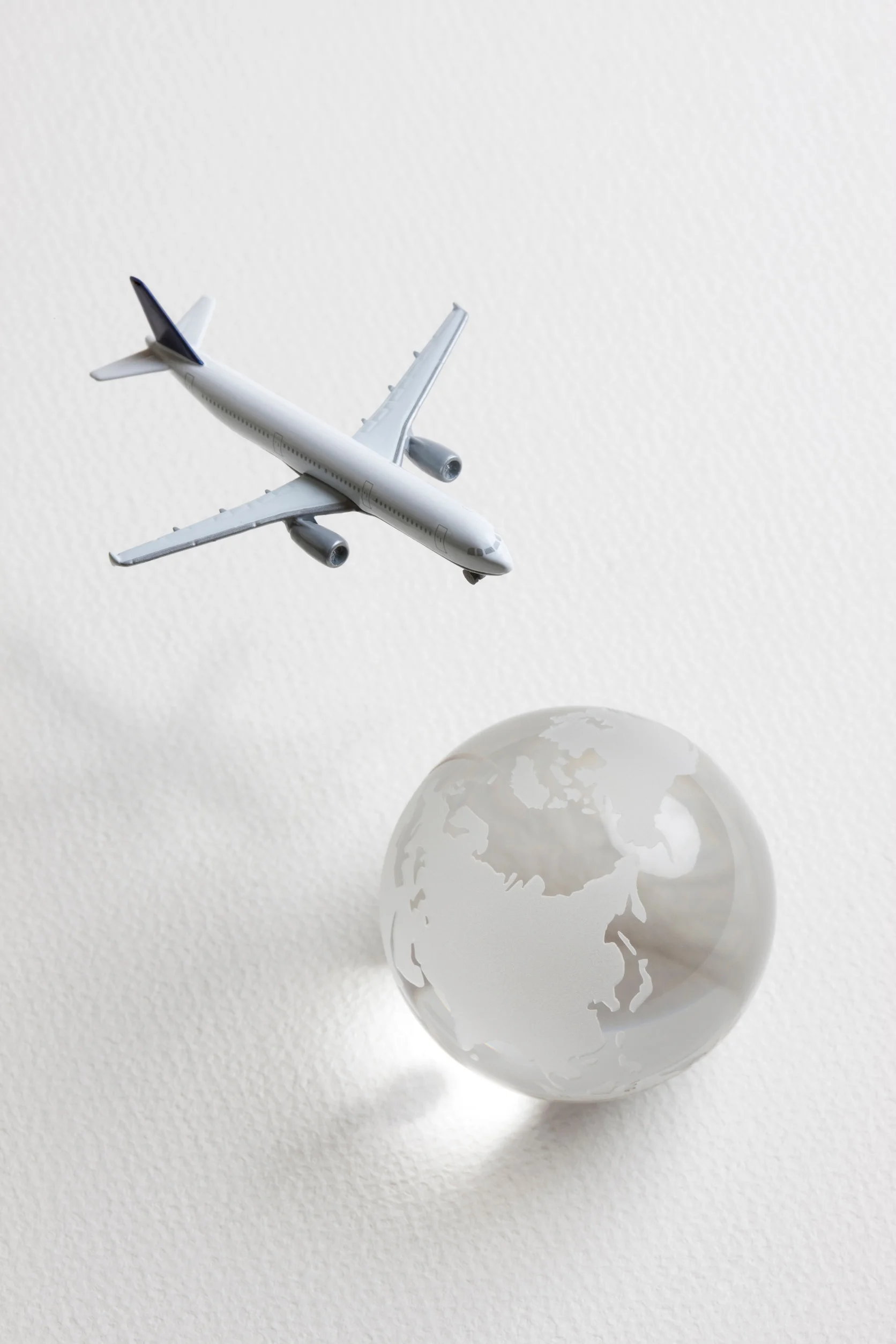Top 14 Things Tourists Should Avoid Doing in Cameroon

Visiting Cameroon can be an incredible adventure, full of culture, color, and connection—but like anywhere, there are a few things best left undone. Some missteps might simply mark you as a tourist, while others could lead to misunderstandings or even legal trouble. Taking the time to learn what to avoid not only helps you stay safe but also shows respect for the people and places you’re visiting. Whether it’s knowing how to dress, when not to take photos, or what topics to steer clear of, a little awareness goes a long way toward making your trip smooth and enjoyable.
1. Disrespecting Local Customs and Traditions
Cameroon is a tapestry of over 250 ethnic groups, each with unique customs and traditions. While some practices might seem unfamiliar, demonstrating respect is paramount.
- Avoid insensitive clothing in conservative or rural areas: Modesty is generally appreciated. For women, this means avoiding very short skirts, shorts, or revealing tops, particularly when visiting religious sites or traditional communities. Men should also avoid being shirtless in public.
- Don't assume all ethnic groups have the same customs: Research or observe the specific customs of the region you are in. What is acceptable in a bustling city like Douala might not be in a more traditional village.
- Show respect during traditional ceremonies and when entering homes: If invited into a home, wait to be offered a seat. When attending ceremonies, follow local cues on appropriate behavior, and always ask permission before participating.
2. Taking Photos Without Permission
While Cameroon's vibrant scenes are incredibly photogenic, caution and respect are essential when taking pictures.
- Avoid photographing people (especially children), military personnel, or government buildings without asking: Always seek explicit permission. Some individuals may feel uncomfortable being photographed, while taking pictures of official or sensitive sites could lead to misunderstandings or even legal trouble.
- Be cautious when taking pictures in markets or remote villages: In bustling markets, vendors might be protective of their goods or prefer not to be photographed. In remote areas, people may have cultural or personal reasons for not wanting their image captured. A polite request in French or a local language often goes a long way.
3. Engaging in Political Discussions or Protests
Cameroon has a complex political landscape, including ongoing challenges, particularly the Anglophone crisis in the Northwest and Southwest regions.
Avoid discussing politics, especially around the Anglophone crisis: This is a highly sensitive topic. As a foreigner, it's best to refrain from expressing opinions or engaging in debates about local governance, security issues, or political figures.
Do not participate in demonstrations or take photos of protests: Even as an observer, your presence could be misinterpreted and lead to undesirable consequences. Public gatherings can escalate quickly, and authorities may view foreign participation with suspicion.
4. Ignoring Safety Advice in Certain Regions
Security situations can change, and it's vital to stay informed and prioritize your safety.
- Avoid traveling to the Far North or border areas with Nigeria and the Central African Republic due to security risks: These regions have faced threats from extremist groups and banditry. Consult official travel advisories before planning any trip to these areas.
- Follow updates from your embassy or local authorities: Government travel advisories provide the most current information on risk areas and security recommendations. Local contacts can also offer valuable real-time insights.
5. Displaying Wealth or Valuables
Although Cameroon is known for its hospitality, petty crime such as pickpocketing and bag-snatching can occur, particularly in busy urban areas. Tourists should avoid wearing flashy jewelry or openly displaying expensive gadgets, as this can attract unwanted attention and make them targets for theft. To stay safe, it's best to keep a low profile—carry only essential items for the day, store valuables securely at your accommodation, and use smartphones or cameras discreetly, especially in crowded public places.
6. Using Taxis or Public Transport Without Caution
Getting around in Cameroon is essential for exploring its many attractions, but doing so safely requires some vigilance. Tourists should avoid using unregistered taxis, as these vehicles may lack proper maintenance, insurance, or trustworthy drivers. Instead, opt for taxis recommended by your hotel or use ride-hailing apps like Yango, which are available in major cities. Additionally, it's best to avoid traveling alone at night, particularly in unfamiliar areas. If evening travel is necessary, always use a trusted driver or reputable service to ensure your safety.
7. Drinking Tap Water
Water quality in Cameroon can vary widely, and tap water is generally not safe to drink, especially in rural areas. Even in urban centers, the water supply can be inconsistent and may carry health risks. To avoid stomach issues and waterborne illnesses, tourists should stick to bottled or properly filtered water at all times. Always ensure the seal on bottled water is intact, and be cautious with ice in drinks unless you are certain it was made from purified water.
8. Being Disrespectful with Language
Cameroon is officially bilingual (English and French), but the language situation is deeply interwoven with its history and politics.
Avoid using French or English in a dismissive way depending on the region; language politics can be sensitive: In Anglophone regions (Northwest and Southwest), residents may prefer English, and the use of French can be perceived negatively due to historical grievances. Conversely, in Francophone regions, French is the primary language.
Try to learn and use basic greetings in local languages: A simple "Bonjour" or "Good morning" and attempting a few words in a local language like Douala, Ewondo, or Fulfulde (depending on the region) can go a long way in showing respect and fostering goodwill.
9. Assuming Everyone Speaks English
While English is one of Cameroon's official languages, its use is not uniform across the country. In many regions—especially in the central, southern, and eastern areas—French is far more commonly spoken. Tourists should avoid assuming that everyone will understand or speak English. When faced with a language barrier, patience and politeness go a long way. Using basic French phrases, gestures, or translation apps can help facilitate communication, and a friendly attitude often bridges gaps more effectively than words alone.
10. Littering or Damaging Natural Sites
Cameroon boasts incredible natural beauty, from pristine beaches to lush national parks, which need to be preserved.
- Avoid littering in national parks, beaches, or cultural sites: Dispose of your waste responsibly. Carry a small bag for your trash until you find a suitable bin.
- Be eco-conscious, especially when visiting eco-tourism areas like Mount Cameroon or Waza National Park: Stick to designated trails, do not disturb flora or fauna, and support local initiatives that promote conservation.
11. Touching or Feeding Wildlife
Cameroon's national parks and reserves are home to a diverse array of wildlife, from elephants and lions to gorillas and chimpanzees.
- Avoid interacting closely with wildlife, especially in reserves: Keep a safe distance and never attempt to touch or provoke animals.
- Feeding animals disrupts their behavior and can be dangerous: It makes them dependent on humans, can spread diseases, and makes them lose their natural fear, potentially leading to aggression.
12. Overlooking Cultural Etiquette at Markets
Markets in Cameroon are lively hubs of daily life, rich with colorful displays, local flavors, and cultural exchange. While bargaining is a normal part of the shopping experience, tourists should avoid haggling too aggressively or handling items without permission. It's important to approach vendors with respect and courtesy—always greet them with a polite "Bonjour Madame" or "Bonjour Monsieur" before discussing prices. This small gesture sets a friendly tone and can lead to a more positive and respectful interaction.
13. Assuming Urban Standards Apply Everywhere
Cameroon’s level of development varies greatly between its urban centers and rural regions. While cities like Yaoundé and Douala may offer modern amenities, tourists should avoid expecting the same standards in more remote areas. Infrastructure such as electricity, running water, and internet access can be limited or unavailable outside major towns. Travelers are encouraged to be adaptable and respectful of local conditions, viewing these differences as part of the cultural experience. A flexible mindset and willingness to embrace a simpler lifestyle will greatly enhance your journey.
14. Traveling Without Local Currency
While major hotels and some upscale establishments might accept credit cards, cash is king in Cameroon.
- Avoid relying on credit cards everywhere—many places are cash-based: Markets, small shops, local restaurants, and transport services predominantly operate on cash. ATMs are available in cities but can sometimes be out of service or run out of cash.
- Always carry small bills in CFA francs: It can be challenging to get change for large denominations, especially in rural areas or when buying small items. Mobile money services (like MTN MoMo or Orange Money) are also widely used and convenient for local transactions if you acquire a local SIM card.
By keeping these points in mind, tourists can ensure a respectful, safe, and truly enriching experience in Cameroon, allowing them to fully appreciate the warmth of its people and the beauty of its landscapes.
Disclaimer: While this information was last updated in January 2026, we strongly suggest confirming all travel details with the appropriate governmental agencies, embassies, and airlines.
Applying for a Cameroon eVisa
- Step 1: Complete the online application form with your personal details and passport information.
- Step 2: Proceed to securely pay online using your credit card.
- Step 3: Check your email for payment confirmation and receipt of your Cameroon eVisa, which will be sent electronically.



